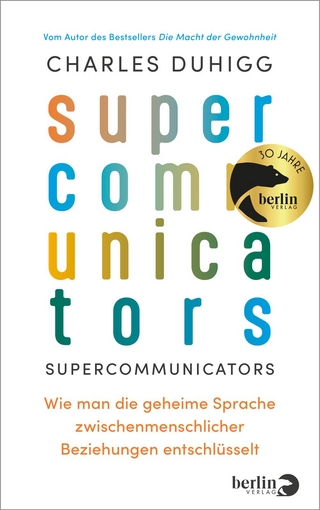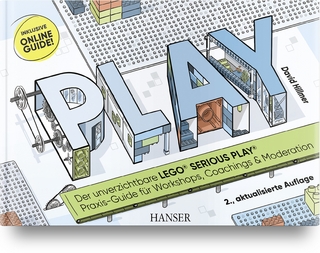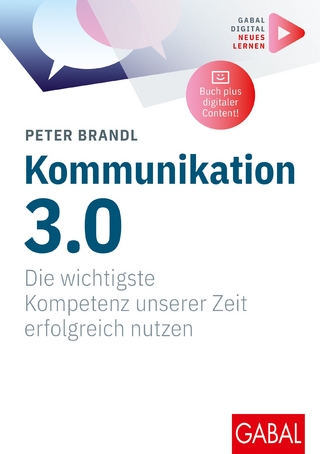
The Informed Argument
Wadsworth Publishing Co Inc (Verlag)
978-1-4282-6230-0 (ISBN)
- Titel ist leider vergriffen;
keine Neuauflage - Artikel merken
Robert P. Yagelski is associate vice provost and director of the Program in Writing and Critical Inquiry and professor of English education in the Department of Educational Theory and Practice at the State University of New York (SUNY) at Albany. He teaches courses in writing, composition theory and pedagogy, critical pedagogy and qualitative research methods in addition to helping prepare secondary school teachers. Considered a leading voice in composition theory, Dr. Yagelski is widely published in the major journals in the field. He is former director of the Capital District Writing Project, a site of the National Writing Project, and former director of the SUNY-Albany Writing Center. He earned his Ph.D. in rhetoric and composition from The Ohio State University.
Part I: UNDERSTANDING ARGUMENT.
1. The Purposes of Argument.
What is an Argument? Understanding the Purposes of Argument. Arguments to Assert. Arguments to Prevail. Arguments to Inquire. Arguments to Negotiate and Reconcile.
2. The Contexts of Argument.
The Rhetorical Situation. Analyzing Your Audience. Imagining Your Audience. Cultural Context. Understanding Culture. Considering Culture in Argument. Considering Gender. Consider Age. Considering Sexual Orientation. Historical Context.
3. The Media for Argument.
Analyzing Arguments in Print. Reading Arguments Critically in Print Form. Analyzing Arguments in Visual Media. Photographs as Argument. Advertisements as Argument.
Art as Argument. Integrating Visual Elements and Text. Analyzing Arguments in Electronic Media. The Internet. Websites. Online Versions of Print Arguments. Websites as Arguments. Social Media.
4. The Strategies for Argument.
Understanding Ethos: Appeals to Character. Understanding Pathos: Appeals to Emotion.
Understanding Logos: Appeals to Reason. Patterns of Logic. Reasoning Inductively. Reasoning Deductively. The Syllogism. The Enthymeme. Cultural Differences in Logical Arguments. The Toulmin Model of Argumentation. Understanding Claims and Warrants.
Evaluating Claims and Warrants. Appraising Evidence. Facts as Evidence. Personal Experience as Evidence. Authority as Evidence. Values as Evidence. Presenting Evidence in Visual Form. Recognizing Logical Fallacies. Appealing to Pity. Appealing to Prejudice. Appealing to Tradition. Arguing by Analogy. Attacking the Character of Opponents. Attributing False Causes. Attributing Guilt by Association. Begging the Question.
Equivocating. Ignoring the Question. Jumping to Conclusions. Opposing a Straw Man. Presenting a False Dilemma. Reasoning That Does Not Follow (“Non Sequitur”). Sliding Down a Slippery Slope.
Part II: COMPOSING ARGUMENTS.
5. Constructing Arguments.
Managing the Composing Process. Understanding Composing as Inquiry. Defining Your Topic. Considering Audience. Identifying Your Audience. Making Concessions.
Understanding Audience Expectations. How One Student Addresses Her Audience. Defining Your Terms. Structuring an Argument. Classical Arrangement. Rogerian Argument. Logical Arrangements. Inductive Reasoning. Deductive Reasoning. Using the Toulmin Model. Supporting Claims and Presenting Evidence. Using Language Effectively.
6. Doing Research.
Reading Critically. Previewing. Annotating. Summarizing. Synthesizing. Integrating Source Material Into Your Paper. Avoiding Plagiarism. Finding Relevant Material. Using the Internet. Searching for Magazine and Journal Articles. Looking for Books. Conducting Interviews and Surveys.
7. Documenting Your Sources.
Compiling a Preliminary Bibliography. Citing Sources. MLA and APA Sources. Using Footnote and Content Notes. Parenthetical (In-Text) Citation. Organizing a Bibliography.
MLA-Style Documentation. Citing Sources in MLA Style. Creating a Bibliography or Works Cited Page in MLA Style. APA-Style Documentation. Citing Sources in APA Style. Creating a Bibliography or Works Cited Page in APA Style. Preparing Your Final Draft.
Part III. NEGOTIATING DIFFERENCES.
8. Ownership.
Who Owns Words and Ideas?. Jay Matthews, “Standing Up for the Power of Learning”.
Ralph Caplan, “What’s Yours? (Ownership of Intellectual Property)”. David Gibson, “Copyright Crusaders”. Angela Lipson and Shelia M. Reindl, “The Responsible Plagiarist: Understanding Students Who Misuse Sources”. Who Owns Music?. “Free Downloads Play Sweet Music,” Janis Ian. “Ringtones,” Tom Lowry. “Hello, Cleveland,” James Surowiecki.
“Collecting Music in the Digital Realm,” Tom McCourt. What Should We Own?. Henry David Thoreau, excerpt from “Economy” in Walden (new selection). Rebecca Tuhus-Dubrow, “Rethinking Rent” (new selection). David Boaz, “Defining an Ownership Society” (new selection). Marc Goldwein, “The End of the Ownership Society” (new selection).
9. Relationships.
How Should We Conduct Our Relationships?. Natalie Dylan, “Why I’m Selling My Virginity” (new selection). Darryl James, “Get Your Hand Out of My Pocket”. Vigen Guroian, “Dorm Brothel”. Amy Benfer, “We’re Here! We’re Queer! We’re 13!” (new selection). What Does it Mean to be a Good Parent?. “Designer Babies and Other Myths,” Maureen Freely. “Victims From Birth,” Wendy McElroy (new selection). “The Good Enough Mother,” Anna Quindlen (new selection). “What Fathers Do Best,” Steven E. Rhoads (new selection). What Are Family Values?. Cristina Nehring, “Fidelity with a Wandering Eye”. Jonathan Rauch, “A More Perfect Union”. Stephanie Coontz, “The Future of Marriage” (new selection). Kay Hymowitz, “The Marriage Gap” (new selection).
10. Communication. (new chapter)
Should There Be Limits on Free Speech?. Anne Applebaum, “The Globalization of Censorship” (new selection). Doug Marlette, “Them Damn Pictures” (new selection).
Don Watkins, “Why We Have Free Speech in America” (new selection). Gerald Uelman, “The Price of Free Speech: Campus Hate Speech Codes” (new selection). What Responsibilities Do Popular Media Have?. Susan Bordo, “Empire of Images in Our World of Bodies” (new selection). Irshad Manji, “Racism in the Media”(new selection). Jesse Smith, “Symbolic Gestures” (new selection). Robert Kaplan, “Why I Love Al-Jazeera”(new selection).
How Should We Talk to One Another in the Digital Age?. Cass Sunstein, “The Daily We: Is the Internet Really a Blessing for Democracy?”. Farhad Manjoo, “The Revolution Will Not Be Digitized”(new selection). Mark Bauerlein, “Why Gen-Y Johnny Can’t Read Non-Verbal Cues”(new selection). Megan Boler, “The Daily Show and Political Activism” (new selection).
11. Education.
What Should Students Be Taught?. Rick Livingston, “The Humanities for Cocktail Parties and More”. Stanley N. Katz, “Liberal Educations on the Ropes”. Stephen L. Trainer, “Designing a Signature General Education Program”. Walter Kirn, “Life, Liberty, and the Pursuit of Aptitude” (new selection). How Should Students Be Taught?. Bill Coplin, “Lost in the Life of the Mind”. Mano Singham, “Moving Away from the Authoritarian Classroom”. bell hooks, “Toward a Radical Feminist Pedagogy”. Lewis Thomas, “The Art of Teaching Science”.
How Should Learning Be Measured?. Patricia Williams, “Tests, Tracking, and Derailment”.
Gregory Cizek, “Unintended Consequences of High Stakes Testing”. Bertell Ollman, “Why So Many Exams? A Marxist Response”. Peter Elbow, “Getting Along Without Grades--and Getting Along With Them too” (new selection).
12. American National Identity.
Who Gets to Be an American?. Celia C. Perez-Zeeb, “By the Time I Get to Cucaracha”.
Peter Brimelow, “A Nation of Immigrants”. Jacob G. Hornberger, “Keep the Borders Open”.
Steven Camarota, “Too Many: Looking Today’s Immigration in the Face”. What Does It Mean to be a Good Citizen?. John Balzar, “Needed: Informed Voters”. Wilfred M. McClay, “America: Idea or Nation?”. Michael Kazin, “A Patriotic Left”. Josiah Bunting III, “Class Warfare: It is Wrong that America’s Most Privileged Families Have Abandoned Military Service”. How Should Americans Govern Themselves?. Thomas Jefferson, First Inaugural Address (new selection). Thomas Friedman, “Where Did “We” Go?” (new selection).
“Letter from Birmingham Jail,” Martin Luther King, Jr. Melinda Pillsbury-Foster, “Americans, Common Law, and Freedom: What You Need to Know” (new selection).
13. Environments.
How Should We Design Communities?. Jane Holtz Kay, “The Lived-In City”. Donella Meadows, “So What Can We Do--Really Do--About Sprawl?”. Robert Wilson, “Enough Snickering. Suburbia Is More Complicated and Varied Than We Think”. Witold Rybczynski, “The Green Case for Cities”(new selection). What (and How) Should We Eat?. Susan Brink and Elizabeth Querna, “Eat This Now!”. Michael Pollan, “Voting With Your Fork” (new selection). Blake Hurst, “The Omnivore’s Delusion” (new selection). Capital Times editorial, “In Defense of Michael Pollan” (new selection). What is Our Responsibility to the Earth?. Rachel Carson, “The Obligation to Endure”. Ronald Bailey, “Silent Spring at 40”.
Mark Dowie, “Human Nature” (new selection). Derrick Jensen, “Forget Short Showers” (new selection).
| Erscheint lt. Verlag | 1.1.2011 |
|---|---|
| Verlagsort | Belmont, CA |
| Sprache | englisch |
| Maße | 204 x 234 mm |
| Gewicht | 1089 g |
| Themenwelt | Sachbuch/Ratgeber ► Beruf / Finanzen / Recht / Wirtschaft ► Briefe / Präsentation / Rhetorik |
| Schulbuch / Wörterbuch ► Wörterbuch / Fremdsprachen | |
| ISBN-10 | 1-4282-6230-X / 142826230X |
| ISBN-13 | 978-1-4282-6230-0 / 9781428262300 |
| Zustand | Neuware |
| Haben Sie eine Frage zum Produkt? |
aus dem Bereich


